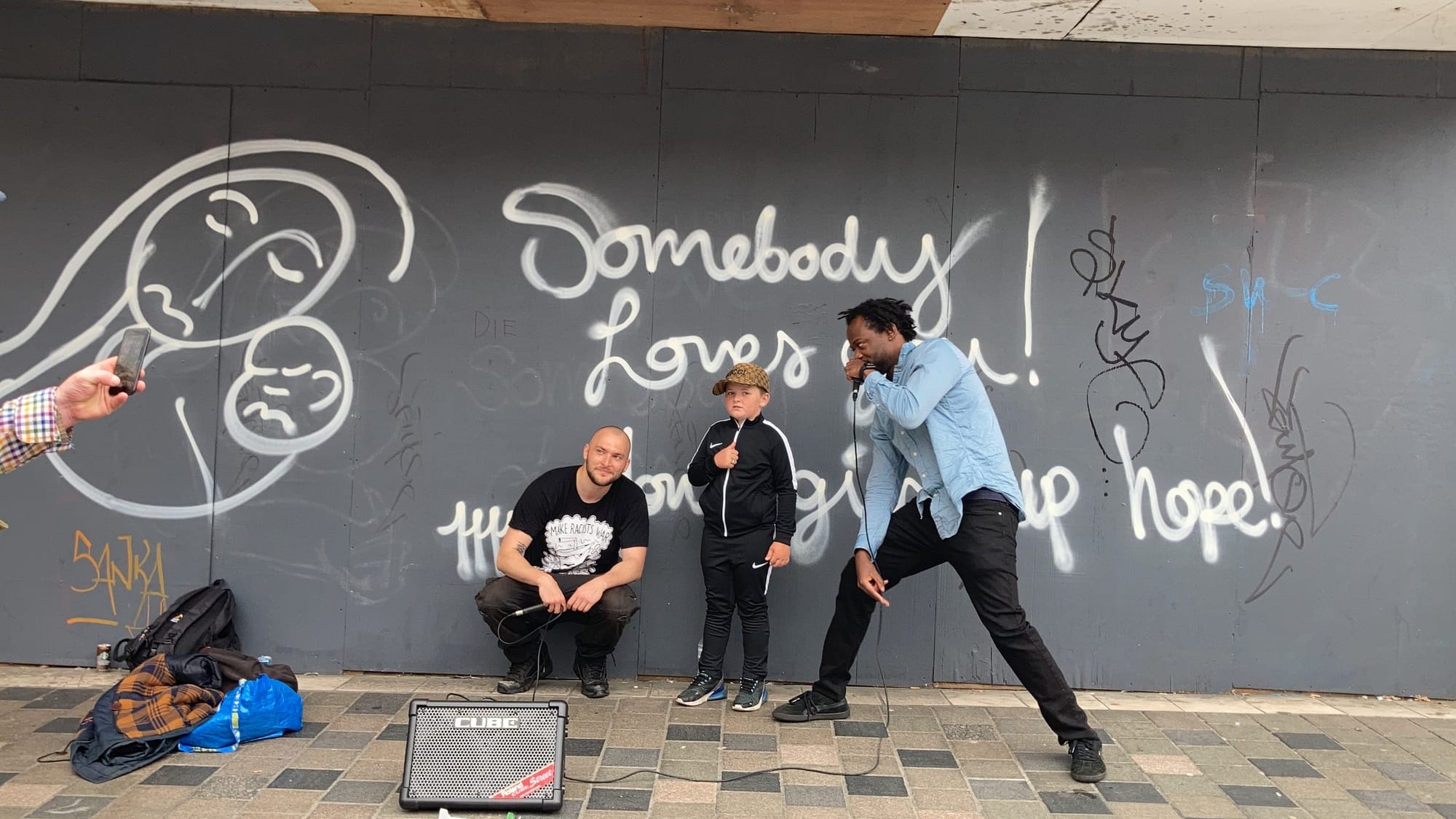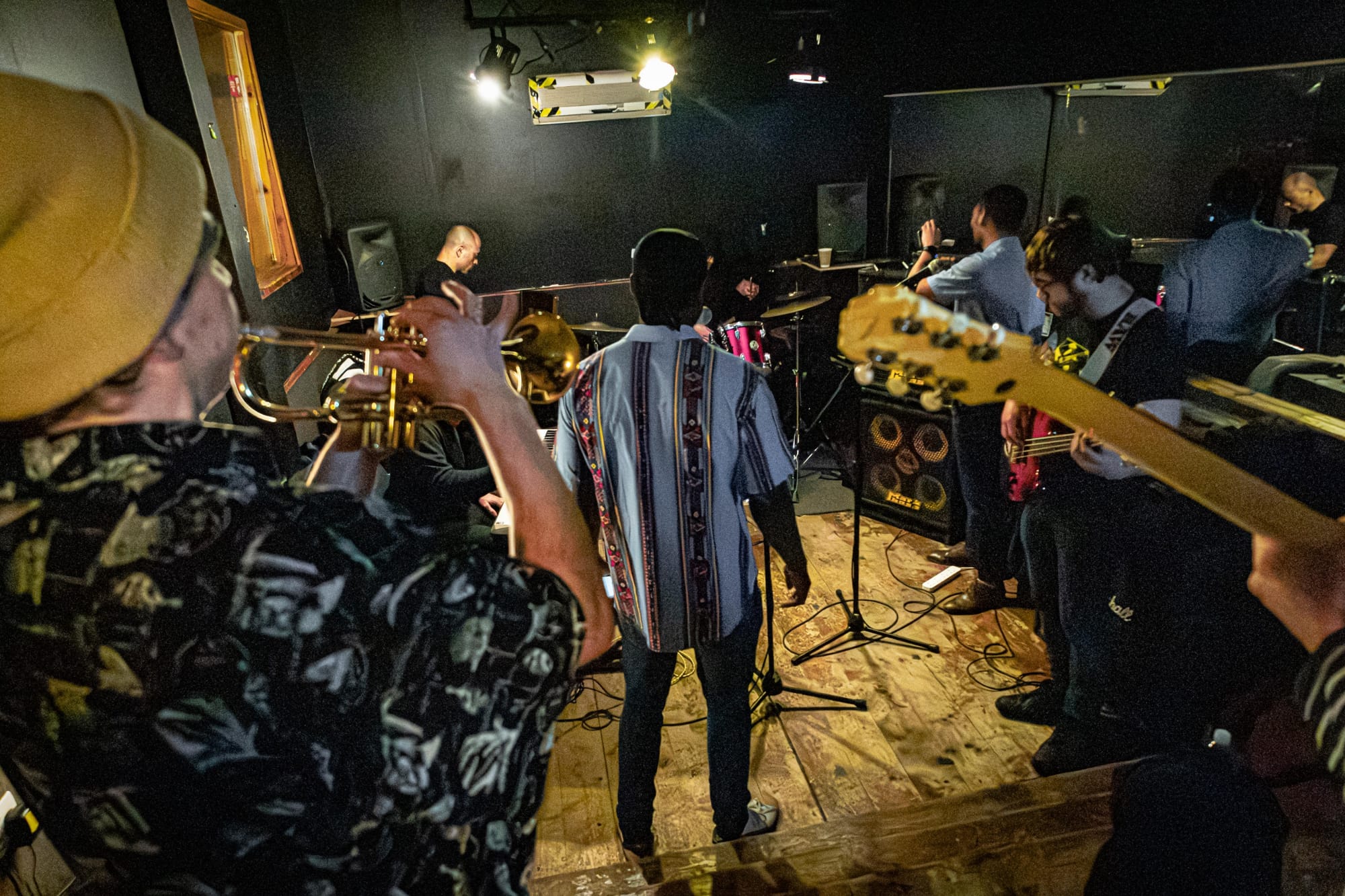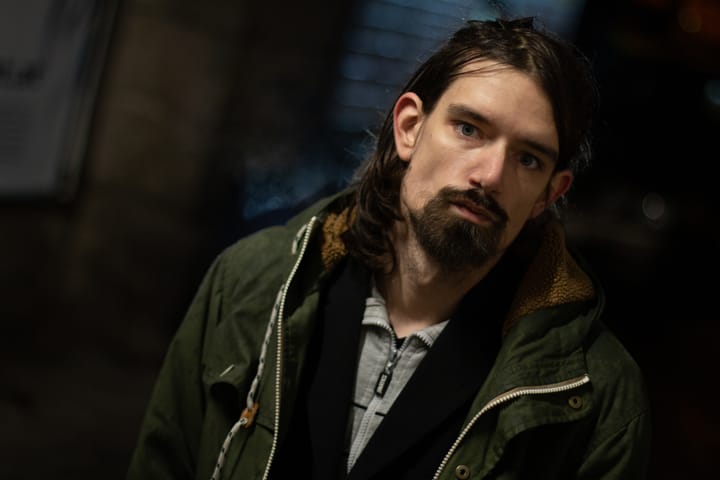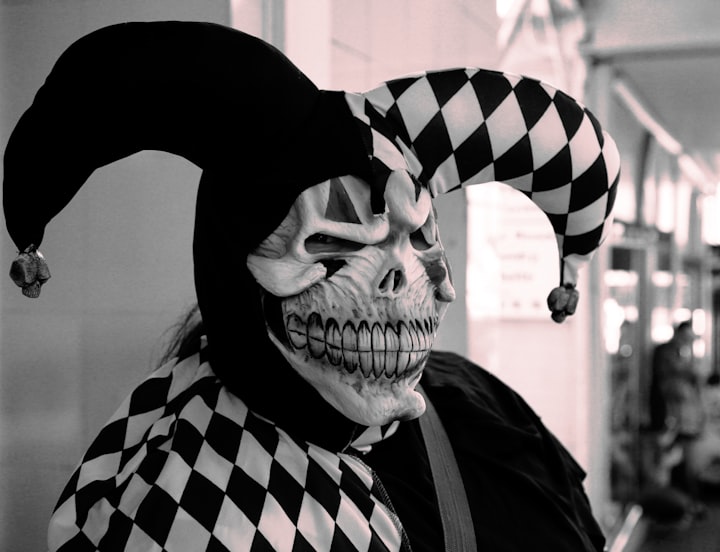Hedvanio Wysten writes about The Bojangles and the power of music to forge connections across ethnic and cultural boundaries.
By Hedvanio Wysten
In celebration of another edition of Breaking the Borders, I want to share a real-life case study of eroding boundaries.
Music has no language; music is the language. It is the one universal language that we can all use to understand each other through the feelings and emotions it triggers. It allows us to connect on a deeper level. Equally, there are no barriers, borders, or differences that can halt its power when there is a will for it to manifest.
Integration and cultural exchange can be achieved through collaborative artistic practice between migrant and local musicians. This exchange happens without compromising identity or artistry in any way, but through creating new and unique pieces of art characterised by the sharing of cultural references. It becomes a process that serves to enrich communities without leaving anyone out.
This is a story about music’s power to forge connections, exemplified by the case of The Bojangles, a Scottish band – my band – that writes songs in Portuguese and is based in Glasgow.
The first steps
The name ‘Bojangles’ wouldn’t tell you much about the band, as it is not a reference to any aspect of the cultures that make up our group but rather a random attempt at a humorous nod to one of my favourite musical performances by Sammy Davis Jr., 'Mr. Bojangles'. You can easily find it on YouTube. I am sure you will be as delighted as I was the first time I saw it, and every time since.
But let's not be mistaken: The Bojangles are a very serious band, as we hope to convey through our motto: 'The most serious band in Scotland'. Indeed, we are very much a Scottish band. Our story started in Glasgow circa 2023 in a post-pandemic context when we were all finally free to return to a supposed normalcy in what we came to realise was a completely new world characterised by new fears, angst, and rusty social skills; however, we shared a stronger-than-ever will to connect and reconnect with others from whom we were isolated for more than two years.
We all reside in the south side of Glasgow, in one of the most diverse communities in the UK. This creates the perfect environment for fortuitous encounters and exchanges that can breed authentically unique projects. One of those encounters was when I met Ross Wood, the bass player for The Bojangles, on a sunny day in Queen's Park.
I am originally from Angola, but I grew up in Portugal and have somehow, for the last five years, been living in Glasgow. I didn’t move here for the weather, but I’d give that answer in place of the truth if anyone asks. But enough about me. Ross Wood, a native of Glasgow's south side, is one of those characters who always walk around carrying a guitar and will respond kindly and authentically if approached for a Glaswegian spontaneous chat, particularly if it's about music. So, on that pleasant day, we dwelt on the topic for hours. As a fellow musician, I'm always delighted when the conversation turns to music and its current state, history, possible projects, and how blessed we are that Glasgow is such a musically rich city. I told him of my passion for hip hop and that I felt a lack of hip hop events compared to other genres in the city. However, I could see a unique opportunity to develop a hip hop project in town, and particularly in the south side given its diverse community and the wider appeal of the genre. I also told him that, alongside a friend from Greece, I had done several busking (street performance) sessions in town in the past. These were always well received, even though I would perform the songs in Portuguese and he in his native Greek; the city was accepting of our forms of expression.

Ross mentioned that he runs some jam and open mic sessions and that Walter, the Colombian chef in the bar he works at, also had an interest in hip hop music. Eventually, we all met at the local pub Linen 1906, the true breeding ground of this project, in one of the open jam sessions. They opened up the last hour of their weekly jam session to hip hop, to the shock and amusement of the regular old-man pub patrons. Regardless, they always greeted us with cheers and claps. It went so well that eventually we were having regular hip hop sessions on Sundays. Walter and Murray – another Scottish beatmaker – would take care of playing instrumentals on their fancy drum machines while I would rap on top of them. Sometimes Ross and the other musicians would join with live instruments. The event’s popularity grew quickly and other rappers joined in. There was a community brewing; a collective had officially started and we soon began performing in other venues in town.
One of the opportunities we had was to perform at a local community café in Govanhill, where we were to have an intimate unplugged session. We quickly put together an ensemble of all of our willing and available musician friends from Linen. This group ended up being a mix of completely different people who otherwise probably would have never come together; different backgrounds, skin colours, and age groups, from young Murray on the sample machine at just 22 to the experienced Campbell on the sax at 69 years old, and many other in between. This included people from many different nationalities: me from Angola and Portugal, Walter from Colombia on the beats, and Chacha from Aberdeenshire... which can almost be considered another country. To make it all even more interesting, all the songs were sung in Portuguese. They were new arrangements of my old songs but with the added flavour of all the new bandmates. We made them funkier, groovier, and jazzier so that they could be more digestible to a local Scottish audience that wouldn’t necessarily absorb the message of the lyrics, but could certainly feel the good vibes we brought.
The show was a success, to say the least. The concept embodied the rich, inclusive, and diverse spirit of the neighborhood. We felt that we were brought together for a purpose and we were in the right place at the right time. Despite the short time for rehearsals — only four weeks —, the language barriers, and cultural differences, we performed as one, in perfect unity. It was a quasi-improvisation showdown where everyone added a little bit of seasoning into the potluck to make something we and the audience could truly delight in; it was pure musical connection. We were overjoyed and simply couldn’t stop there. And, like that, The Bojangles were born.
The next steps and the future
Fast-forward a few weeks, and more opportunities came our way: more gigs, more members joined the band. Now we had Michael from Glasgow on the guitar, Greg from Fife on the trumpet, and Jah from Glasgow on drums. We wrote new original songs and performed in new venues in town, eventually getting a regular gig at a bigger venue.
We were still singing in Portuguese, but now with a reinforced conviction that what we were doing was all right. More than just playing music, we were involved in a valuable and rich exchange between many different cultures. We were becoming friends, and we were learning from each other: Scottish rhythms blended into Portuguese poetry, hip hop, jazz, blues, and folk music. We all had different references, but understood each other and played well together. The audience loved it. Our music was breaking all the barriers, and we were overcoming our differences. We would get the odd comment that we should sing in English but not from those who truly understood us or our essence, which was to remain authentic and to share something that was truly ours.

The next logical step was to take the band to Portugal, to bring my friends home, to play for people that, besides enjoying our music, could absorb the message of our lyrics. This way, we could establish another layer of connection with our audience and also collaborate with Portuguese musicians in the same way that the Scottish musicians had connected with me. We can establish a cultural bridge, and we are currently in the process of planning a tour to three different cities in Portugal for later this year.
Language shouldn’t be a barrier
I believe that cultural exchanges between nations don’t have to just be promoted by governments or cultural organizations; they most organically originate from the people themselves. This is particularly true in an ever-globalising world marked by migration and linked by fibre-fast internet connectivity. There is no isolated island left to be discovered, and no culture so hidden that it cannot influence others. Okay, maybe the people from the North Sentinel island, but these we must preserve at all cost. Who knows what amazing things they have in store to teach us when and if they one day accept contact? But the point is that we all carry our culture with us, and when people migrate, they take theirs and naturally mix with the ones they find to create new, more complex, and richer forms of cultural expression.
As a migrant, meaningful integration/inclusion in host societies is already hard in itself. There are even more barriers of access to artistic experiences, often due to costs, lack of representation, language, etc., both as a practitioner and as an audience member. Opportunities for collaborations such as in open mics and inclusive creative sessions are great, particularly when these are accepting and promote forms of expression beyond what is local or most regionally popular. Such spaces become a potent way to facilitate the inclusion of different groups, allowing for opportunities for understanding, collaboration, and enrichment of local cultural scenes.
When required, pieces of art can always be contextualized a priori or posteriori with the assistance of other mediums. This can include, for example, having an introductory presentation or debate in the local language, pamphlets with an explanation of the form of art being shown in a gallery, or making translations available on leaflets to the audience to support a gig. Nevertheless, it must be the choice of the author to give or limit the level of access the audience will have. As is often proposed, art doesn’t have to be explained or understood, and everyone should be able to make their own interpretation. In some cases, limitation on perception can be an element of the art itself.
In Western society, it is very acceptable and indeed enjoyable to hear pieces of classical music in Latin, French, and even dialects of Italian. So, it could be said that it must be equally acceptable to consume contemporary urban music in other languages. While due to the history of the genre, there is an expectation of hip hop music being message-driven, particularly with socio-political issues, the genre is rich and diverse enough to be enjoyable alone in its many other facets, such as the rhythm, vibrancy, and energy.
Growing up in Portugal, we were regularly exposed to American and British songs before we were even able to understand them, and we accepted this as being normal. It has certainly expanded our frame of reference and allowed us to learn aspects of American and British culture. So now, I ask myself, why is it that mine and other migrant artists’ authentic influences cannot be accepted in the shaping of the British cultural scene? They can. At the very least, our experience on a very local level shows that these attempts will be well-received. This can and must grow. Migrant artists shouldn’t have to comply and change to achieve success. In an immensely diverse British society, English cannot be the only language accepted by the mainstream. The recent growth in popularity of Nigerian Afrobeats has shown us that this can be challenged.
Music performance and production quality are often enough to substantiate the piece, even surpassing the value of the lyrics themselves; in some cases, language is of secondary importance.
I have always seen myself as a rebel and disruptor, to the extent that I don’t believe in nations. My nation is my culture; this includes the one I have received from my ancestors, from my peers, and, more importantly, the one that I create. And wherever I go, I take it with me, always adding more layers from influences of the people and places I encounter.
Hedvanio is a lifelong migrant/explorer through nations, cultures, ideas and forms of artistic expression. He is currently based in Glasgow until the next opportunity to escape, and is not sure if he already made it, or is still trying to make it, in the rap game.
You can find out more about The Bojangles here, and see them tonight as part of Breaking the Borders Vol. IV in Glasgow.






Comments ()